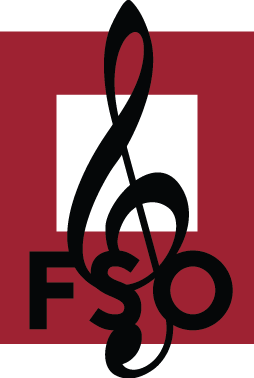
The National Jukebox contains free, public, and historical recordings from “the Library of Congress Packard Campus for Audio Visual Conservation and other contributing libraries and archives.”
The National Recording Registry (NRR) is a list of recordings that “are culturally, historically, or aesthetically important, and/or inform or reflect life in the United States.” Established after the National Recording Preservation Act of 2000, the NRR created the National Recording Preservation Board comprised of Librarian of Congress-appointed members. The Frederick Symphony Orchestra answers all your burning questions about our nation’s musical treasures:
Whose work has been preserved?
Many of the categorized recordings are musical. The most popular composer in the Jukebox is Giuseppe Verdi with 215 available recordings. Irving Berlin (127), Harry Von Tilzer (117), Charles Gounod (113), and Victor Herbert (106) follow.
Aside from composers, authors, lyricists, and performers have made their way, too. Some familiar faces include:
- Songwriter (and Frederick native) Francis Scott Key
- The Jungle Book author Rudyard Kipling
- Romeo and Juliet (whose music can be heard this season) screenwriter William Shakespeare
- Former United States presidents William H. Taft, Woodrow Wilson, and Theodore Roosevelt
- A Christmas Carol, Oliver Twist, and Great Expectations author Charles Dickens
- Les Misérables and The Hunchback of Notre Dame novelist Victor Hugo
As for the NRR, the work of inventor Thomas Edison, comedians Abbott and Costello, singers Billie Holiday and Ella Fitzgerald, astronaut Neil Armstrong, and the original Broadway cast of West Side Story (whose soundtrack you can catch at our Forbidden Love concert) are present.
What’s in the National Jukebox?
4 different types of recordings are in the Jukebox: Vocal, Instrumental, Spoken, and Instrumental with Vocal Refrain. They’re in about 45 different language and linguistic variations.
When were these recordings made?
More than 2,600 of the Jukebox recordings are from 1900 to 1909 while another 5,000 are from 1910 to 1919. From 1920 to 1929, about 2,300 recordings are present.
In the NRR, recordings date from 1853 to 1999. The oldest is Edouard-Leon Scott de Martinville’s Phonautograms while the most recent is Fanfare for the Uncommon Woman by Joan Tower, performed by the Colorado Symphony Orchestra under Marin Alsop.
Where are the National Jukebox’s recordings from?
Most are recorded in the United States. The most popular U.S. city to record is Camden, New Jersey, followed by New York City, Philadelphia, Chicago, and Los Angeles.
Recordings from other countries are also popular, including Argentina, Bolivia, Brazil, Colombia, Cuba, England, France, Germany, Italy, Japan, Mexico, Peru, Puerto Rico, Romania, Russia, Turkey, and Venezuela.
Spain is also a popular recording country, and the FSO is dedicating an entire concert to its music on October 22, 2016. Find tickets here.
How long are the recordings in the NRR?
The Edison Talking Doll cylinder is 17 seconds while Alexander Scourby’s recitation of King James Bible is more than 80 hours.
How many recordings are there?
The Jukebox contains more than 10,300 recordings (the main purpose of these recordings was to educate), and the National Recording Registry contains 450 recordings as of 2016. Recordings can be nominated for submission in 50 categories. For example, this year’s most popular nomination was Louis Armstrong’s Mack the Knife.
Which genres can I find in the National Jukebox and NRR?
There are a multitude of musical genres that can be found in the Jukebox, including blues, classical, ethnic, jazz/ragtime, opera, religious, traditional/country, whistling, and yodeling. Other genres include types of spoken acts like monologues/dialogues/recitations, musical theater, spoken word, and stand-up comedy.
In the NRR, people can find recordings for most of the above as well as Cajun, children’s recordings, choral, environmental, field, heavy metal, Latin, R&B, radio, hip-hop, rock, and technology.
Now you can create a playlist of musical and vocal content from the Jukebox, or download a list of complete registry listings in the NRR dating back to its inception. If you’d like to hear our contribution to our nation’s proud musical history, grab tickets to our 20th Anniversary season.
